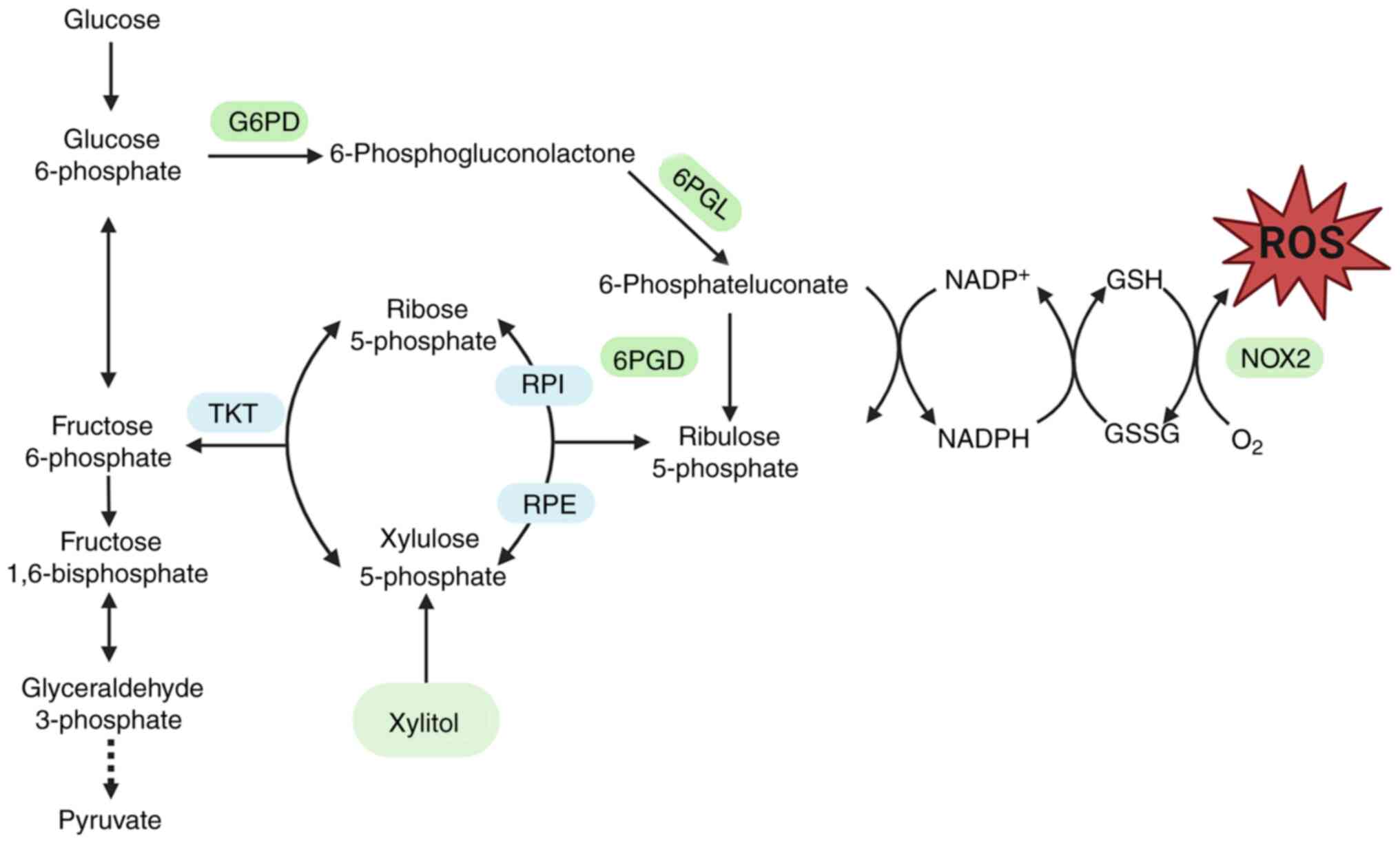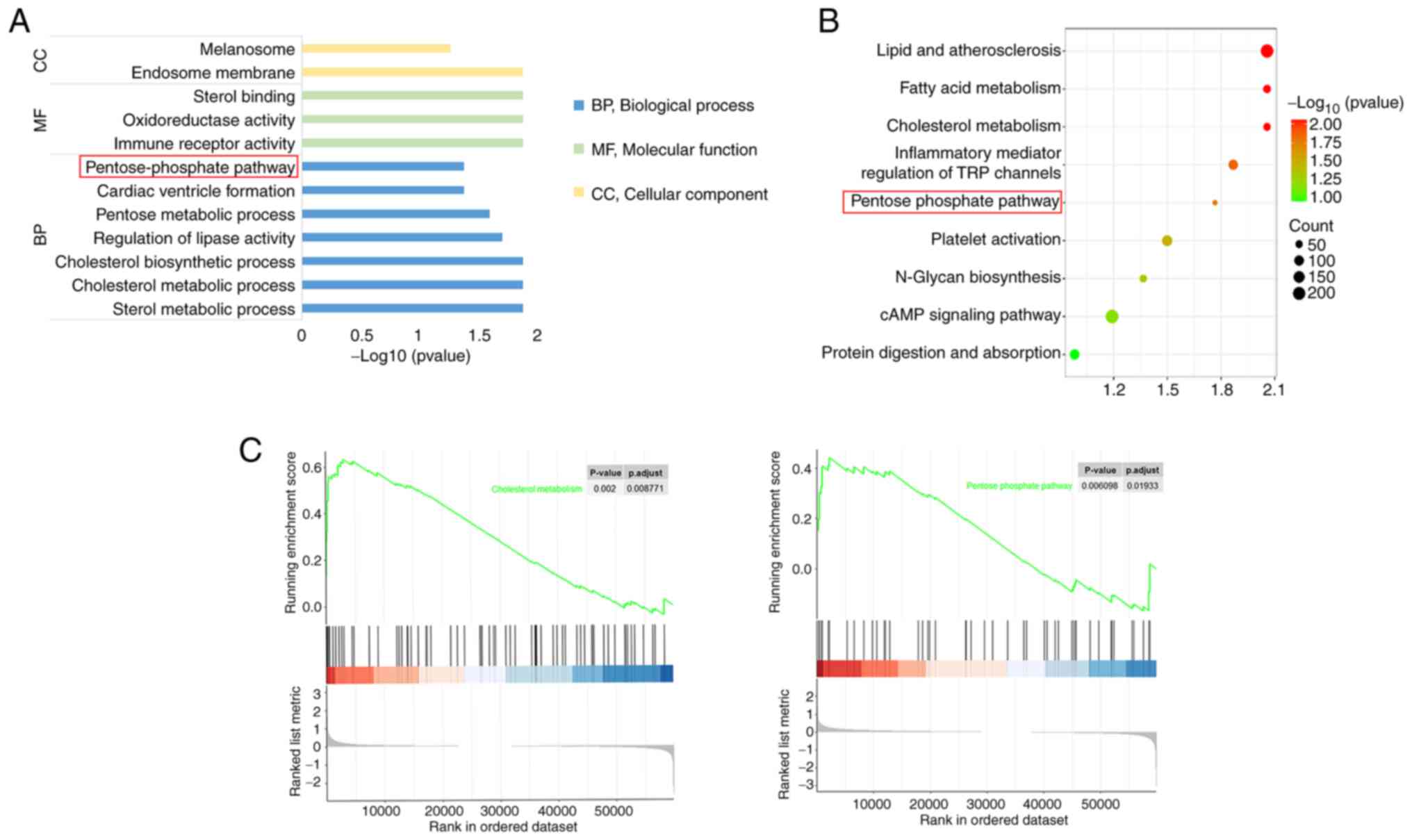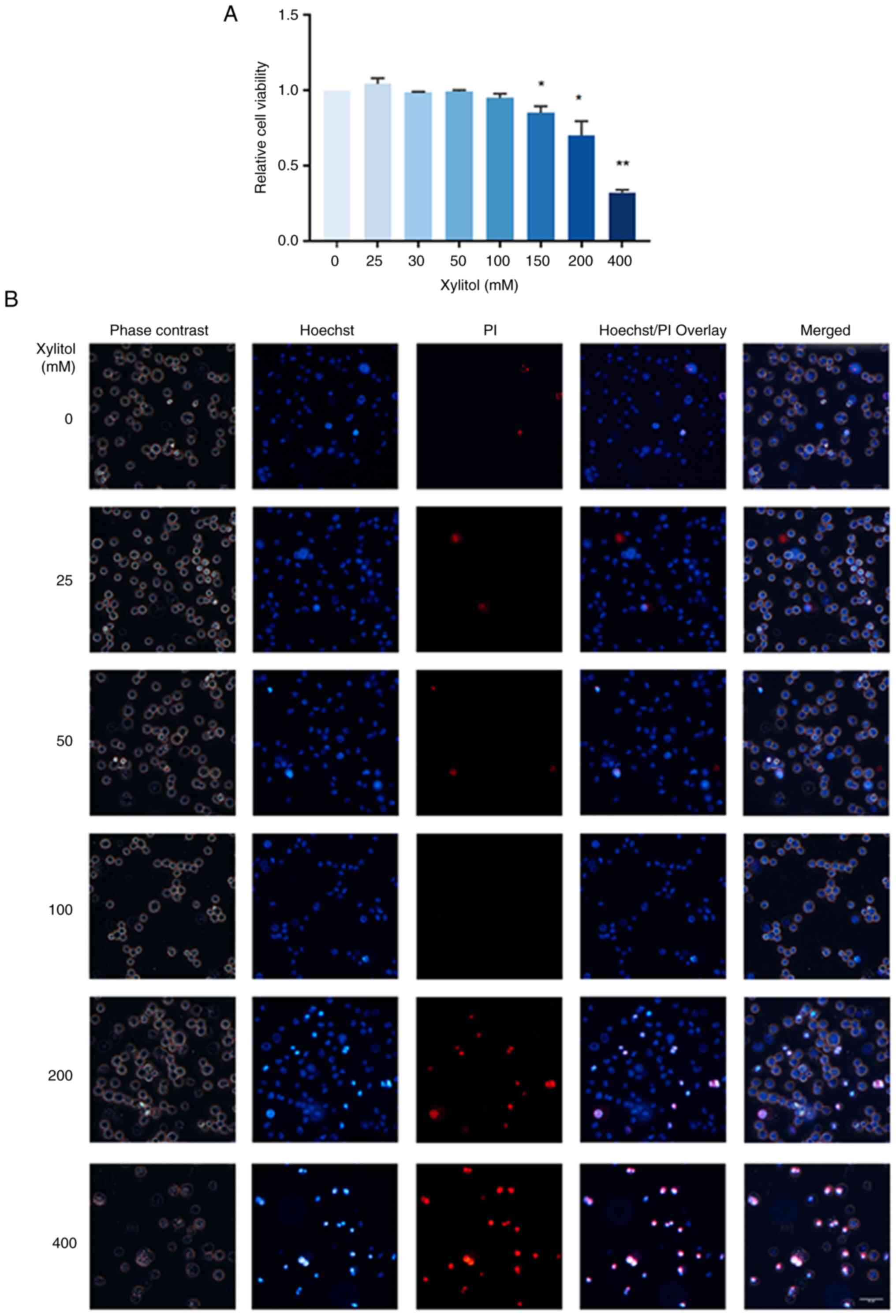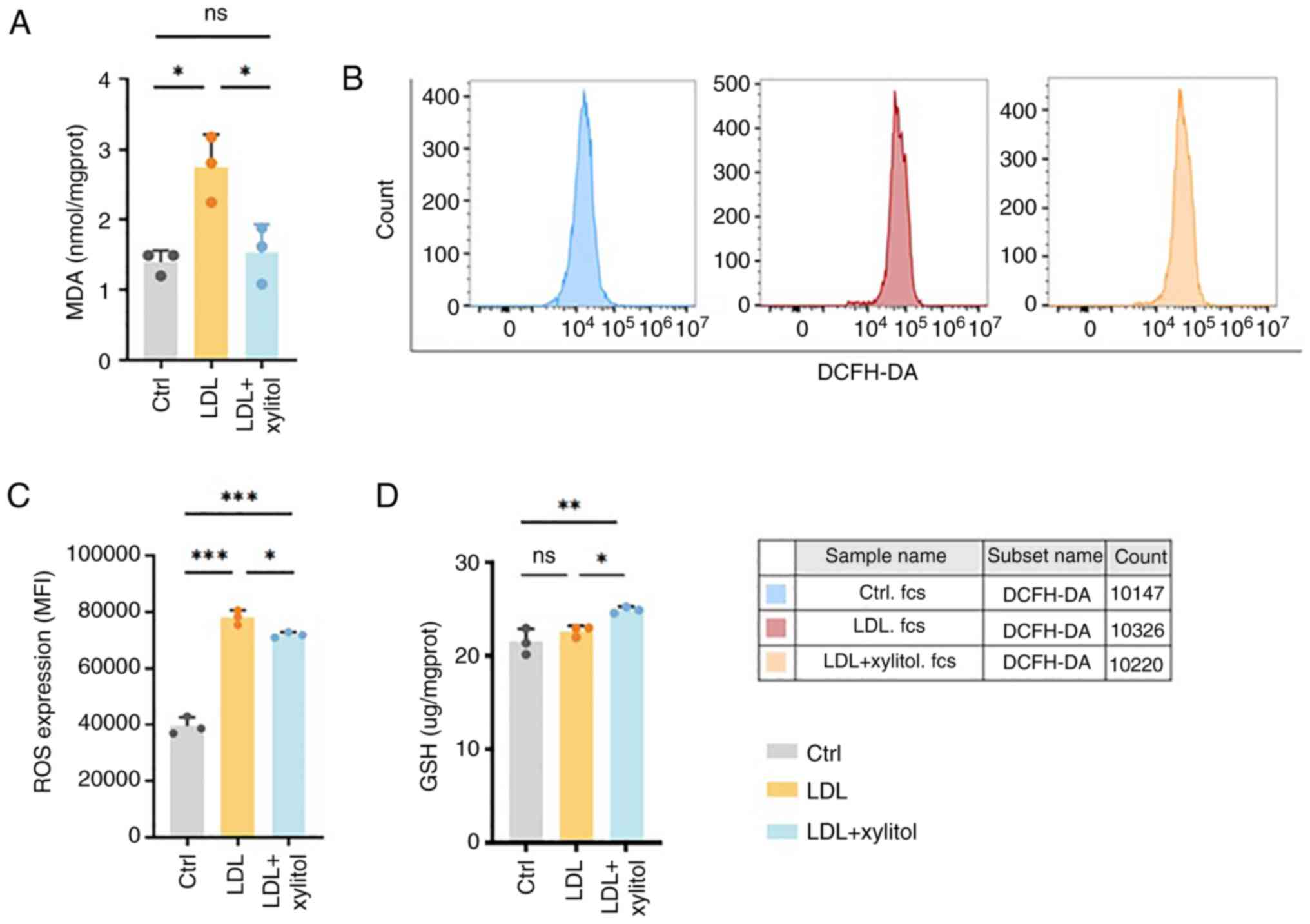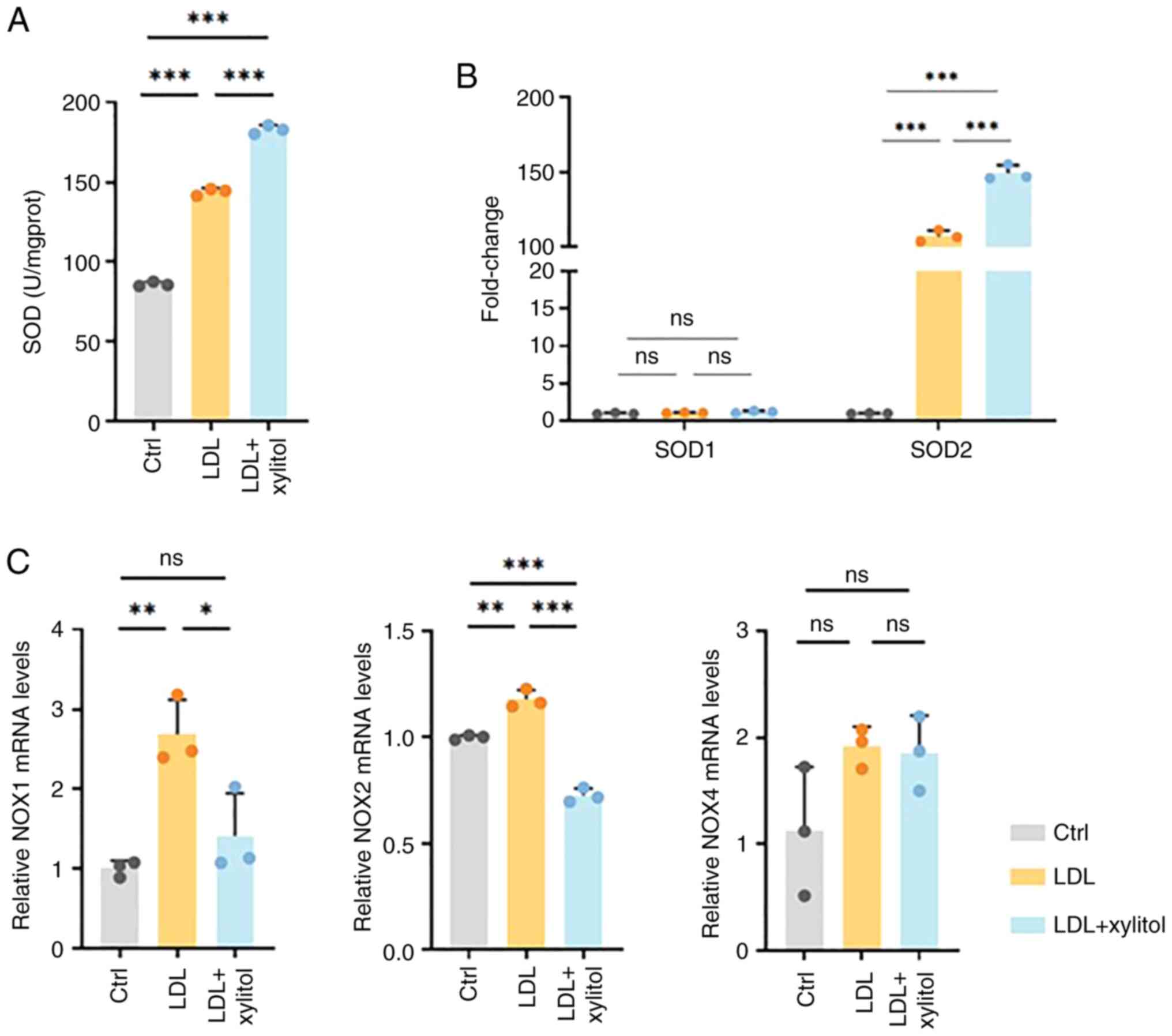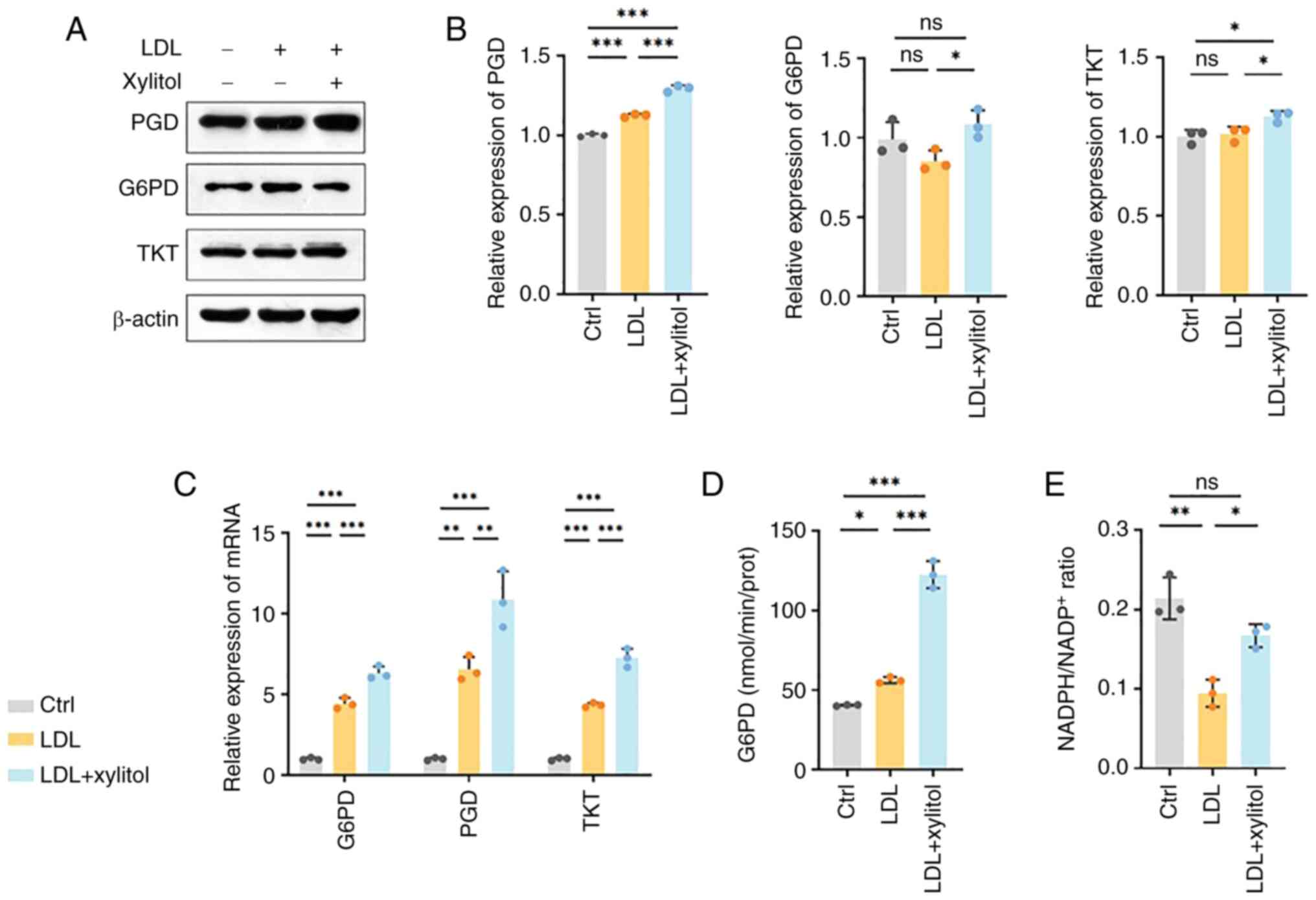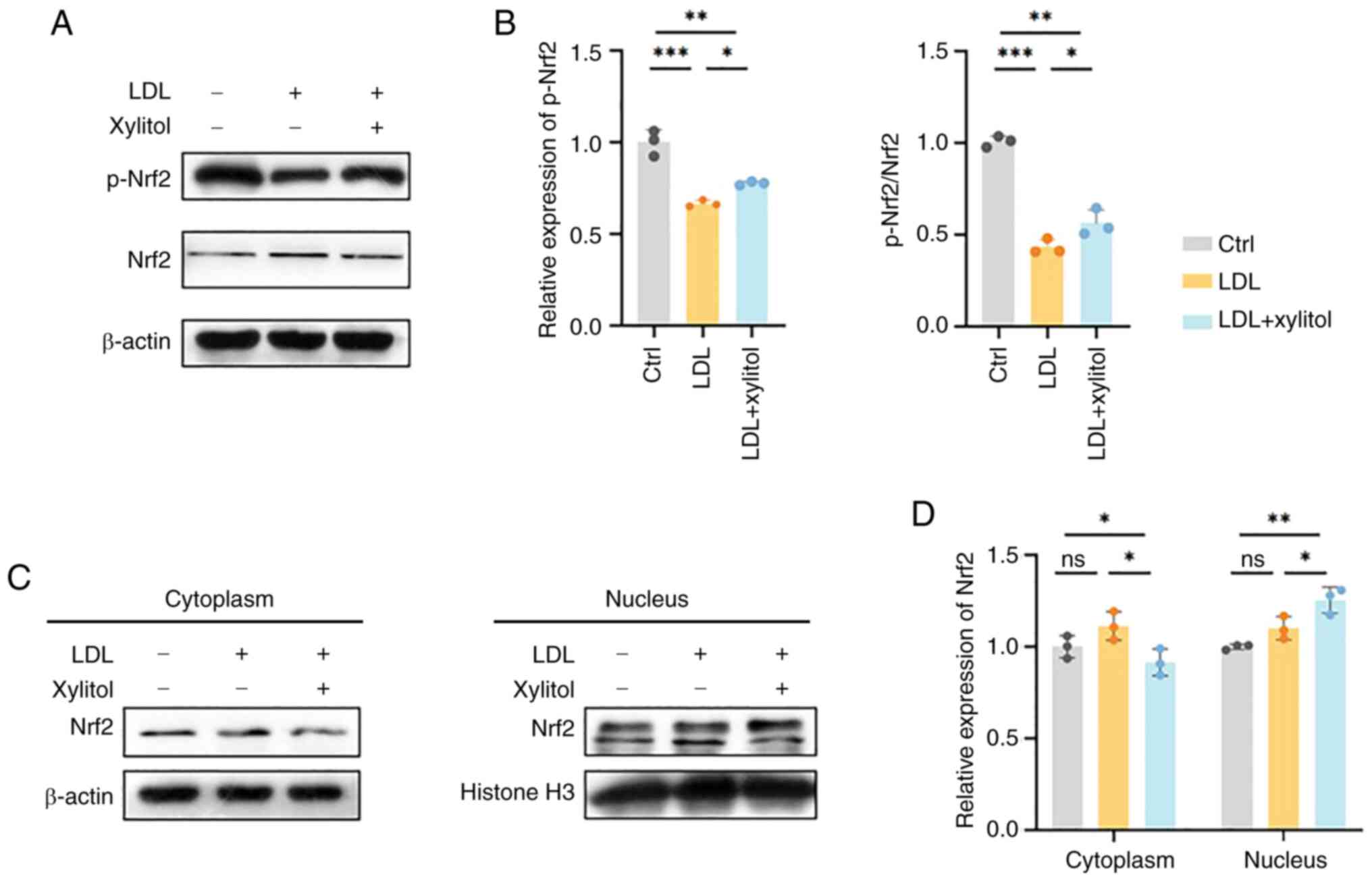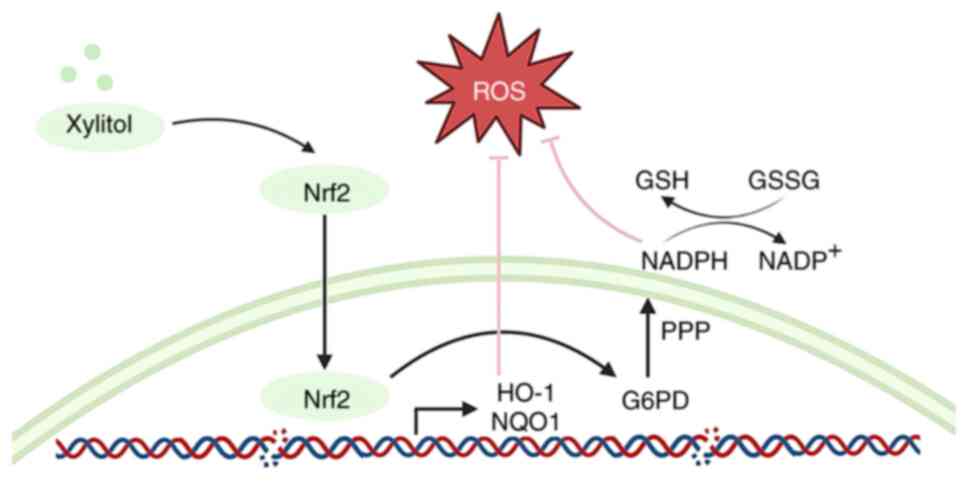|
1
|
Wang B, Tang X, Yao L, Wang Y, Chen Z, Li
M, Wu N, Wu D, Dai X, Jiang H and Ai D: Disruption of USP9X in
macrophages promotes foam cell formation and atherosclerosis. J
Clin Invest. 132:e1542172022. View Article : Google Scholar : PubMed/NCBI
|
|
2
|
Martin SS, Aday AW, Allen NB, Almarzooq
ZI, Anderson CAM, Arora P, Avery CL, Baker-Smith CM, Bansal N,
Beaton AZ, et al: 2025 Heart disease and stroke statistics: A
report of US and global data from the American heart association.
Circulation. 151:e41–e660. 2025. View Article : Google Scholar : PubMed/NCBI
|
|
3
|
Kong P, Cui ZY, Huang XF, Zhang DD, Guo RJ
and Han M: Inflammation and atherosclerosis: Signaling pathways and
therapeutic intervention. Signal Transduct Target Ther. 7:1312022.
View Article : Google Scholar : PubMed/NCBI
|
|
4
|
Raitakari O, Pahkala K and Magnussen CG:
Prevention of atherosclerosis from childhood. Nat Rev Cardiol.
19:543–554. 2022. View Article : Google Scholar : PubMed/NCBI
|
|
5
|
Ference BA, Ginsberg HN, Graham I, Ray KK,
Packard CJ, Bruckert E, Hegele RA, Krauss RM, Raal FJ, Schunkert H,
et al: Low-density lipoproteins cause atherosclerotic
cardiovascular disease. 1. Evidence from genetic, epidemiologic,
and clinical studies. A consensus statement from the European
atherosclerosis society consensus panel. Eur Heart J. 38:2459–2472.
2017. View Article : Google Scholar : PubMed/NCBI
|
|
6
|
Kianmehr A, Qujeq D, Bagheri A and Mahrooz
A: Oxidized LDL-regulated microRNAs for evaluating vascular
endothelial function: Molecular mechanisms and potential biomarker
roles in atherosclerosis. Crit Rev Clin Lab Sci. 59:40–53. 2022.
View Article : Google Scholar : PubMed/NCBI
|
|
7
|
Yan R, Zhang X, Xu W, Li J, Sun Y, Cui S,
Xu R, Li W, Jiao L and Wang T: ROS-induced endothelial dysfunction
in the pathogenesis of atherosclerosis. Aging Dis. 16:250–268.
2024.(Epub ahead of print). PubMed/NCBI
|
|
8
|
Prasad K and Mishra M: Mechanism of
hypercholesterolemia-induced atherosclerosis. Rev Cardiovasc Med.
23:2122022. View Article : Google Scholar : PubMed/NCBI
|
|
9
|
Gasmi Benahmed A, Gasmi A, Arshad M,
Shanaida M, Lysiuk R, Peana M, Pshyk-Titko I, Adamiv S, Shanaida Y
and Bjørklund G: Health benefits of xylitol. Appl Microbiol
Biotechnol. 104:7225–7237. 2020. View Article : Google Scholar : PubMed/NCBI
|
|
10
|
Msomi NZ, Erukainure OL, Salau VF,
Olofinsan KA and Islam MS: Xylitol improves antioxidant, purinergic
and cholinergic dysfunction, and lipid metabolic homeostasis in
hepatic injury in type 2 diabetic rats. J Food Biochem.
46:e140402022. View Article : Google Scholar : PubMed/NCBI
|
|
11
|
Chukwuma CI and Islam S: Xylitol improves
anti-oxidative defense system in serum, liver, heart, kidney and
pancreas of normal and type 2 diabetes model of rats. Acta Pol
Pharm. 74:817–826. 2017.PubMed/NCBI
|
|
12
|
TeSlaa T, Ralser M, Fan J and Rabinowitz
JD: The pentose phosphate pathway in health and disease. Nat Metab.
5:1275–1289. 2023. View Article : Google Scholar : PubMed/NCBI
|
|
13
|
Hayes JD, Dinkova-Kostova AT and Tew KD:
Oxidative stress in cancer. Cancer Cell. 38:167–197. 2020.
View Article : Google Scholar : PubMed/NCBI
|
|
14
|
Koutsaliaris IK, Moschonas IC, Pechlivani
LM, Tsouka AN and Tselepis AD: Inflammation, oxidative stress,
vascular aging and atherosclerotic ischemic stroke. Curr Med Chem.
29:5496–5509. 2022. View Article : Google Scholar : PubMed/NCBI
|
|
15
|
Livak KJ and Schmittgen TD: Analysis of
relative gene expression data using real-time quantitative PCR and
the 2(−Delta Delta C(T)) method. Methods. 25:402–408. 2001.
View Article : Google Scholar : PubMed/NCBI
|
|
16
|
Liu Y, Liu S, Tomar A, Yen FS, Unlu G,
Ropek N, Weber RA, Wang Y, Khan A, Gad M, et al: Autoregulatory
control of mitochondrial glutathione homeostasis. Science.
382:820–828. 2023. View Article : Google Scholar : PubMed/NCBI
|
|
17
|
Patra KC and Hay N: The pentose phosphate
pathway and cancer. Trends Biochem Sci. 39:347–354. 2014.
View Article : Google Scholar : PubMed/NCBI
|
|
18
|
Stincone A, Prigione A, Cramer T, Wamelink
MM, Campbell K, Cheung E, Olin-Sandoval V, Grüning NM, Krüger A,
Tauqeer Alam M, et al: The return of metabolism: biochemistry and
physiology of the pentose phosphate pathway. Biol Rev Camb Philos
Soc. 90:927–963. 2015. View Article : Google Scholar : PubMed/NCBI
|
|
19
|
Fullam E, Pojer F, Bergfors T, Jones TA
and Cole ST: Structure and function of the transketolase from
Mycobacterium tuberculosis and comparison with the human enzyme.
Open Biol. 2:1100262012. View Article : Google Scholar : PubMed/NCBI
|
|
20
|
Smith MJ, Yang F, Griffiths A, Morrell A,
Chapple SJ, Siow RCM, Stewart T, Maret W and Mann GE: Redox and
metal profiles in human coronary endothelial and smooth muscle
cells under hyperoxia, physiological normoxia and hypoxia: Effects
of NRF2 signaling on intracellular zinc. Redox Biol. 62:1027122023.
View Article : Google Scholar : PubMed/NCBI
|
|
21
|
Huang HC, Nguyen T and Pickett CB:
Phosphorylation of Nrf2 at Ser-40 by protein kinase C regulates
antioxidant response element-mediated transcription. J Biol Chem.
277:42769–42774. 2002. View Article : Google Scholar : PubMed/NCBI
|
|
22
|
Jiang X, Yu M, Wang WK, Zhu LY, Wang X,
Jin HC and Feng LF: The regulation and function of Nrf2 signaling
in ferroptosis-activated cancer therapy. Acta Pharmacol Sin.
45:2229–2240. 2024. View Article : Google Scholar : PubMed/NCBI
|
|
23
|
Vincent MF, Van den Berghe G and Hers HG:
D-xylulose-induced depletion of ATP and Pi in isolated rat
hepatocytes. FASEB J. 3:1855–1861. 1989. View Article : Google Scholar : PubMed/NCBI
|
|
24
|
Park E, Na HS, Kim SM, Wallet S, Cha S and
Chung J: Xylitol, an anticaries agent, exhibits potent inhibition
of inflammatory responses in human THP-1-derived macrophages
infected with Porphyromonas gingivalis. J Periodontol.
85:e212–e223. 2014. View Article : Google Scholar : PubMed/NCBI
|
|
25
|
Batty M, Bennett MR and Yu E: The role of
oxidative stress in atherosclerosis. Cells. 11:38432022. View Article : Google Scholar : PubMed/NCBI
|
|
26
|
Violi F, Pignatelli P and Valeriani E:
Oxidative stress and atherosclerosis: Basic and clinical open
issues. Kardiol Pol. 82:689–691. 2024. View Article : Google Scholar : PubMed/NCBI
|
|
27
|
Cordiano R, Di Gioacchino M, Mangifesta R,
Panzera C, Gangemi S and Minciullo PL: Malondialdehyde as a
potential oxidative stress marker for allergy-oriented diseases: An
update. Molecules. 28:59792023. View Article : Google Scholar : PubMed/NCBI
|
|
28
|
Abulizi A, Simayi J, Nuermaimaiti M, Han
M, Hailati S, Talihati Z, Maihemuti N, Nuer M, Khan N, Abudurousuli
K, et al: Quince extract resists atherosclerosis in rats by
down-regulating the EGFR/PI3K/Akt/GSK-3β pathway. Biomed
Pharmacother. 160:1143302023. View Article : Google Scholar : PubMed/NCBI
|
|
29
|
Xu Q, Choksi S, Qu J, Jang J, Choe M,
Banfi B, Engelhardt JF and Liu ZG: NADPH oxidases are essential for
macrophage differentiation. J Biol Chem. 291:20030–20041. 2016.
View Article : Google Scholar : PubMed/NCBI
|
|
30
|
Jiang F, Zhang Y and Dusting GJ: NADPH
oxidase-mediated redox signaling: Roles in cellular stress
response, stress tolerance, and tissue repair. Pharmacol Rev.
63:218–242. 2011. View Article : Google Scholar : PubMed/NCBI
|
|
31
|
Yin CC and Huang KT: H2O2 but not
O2-elevated by oxidized LDL enhances human aortic smooth muscle
cell proliferation. J Biomed Sci. 14:245–254. 2007. View Article : Google Scholar : PubMed/NCBI
|
|
32
|
Gimenez M, Schickling BM, Lopes LR and
Miller FJ Jr: Nox1 in cardiovascular diseases: Regulation and
pathophysiology. Clin Sci (Lond). 130:151–165. 2016. View Article : Google Scholar : PubMed/NCBI
|
|
33
|
Vermot A, Petit-Härtlein I, Smith SME and
Fieschi F: NADPH oxidases (NOX): An overview from discovery,
molecular mechanisms to physiology and pathology. Antioxidants
(Basel). 10:8902021. View Article : Google Scholar : PubMed/NCBI
|
|
34
|
Wang Y, Liu XY, Wang Y, Zhao WX, Li FD,
Guo PR, Fan Q and Wu XF: NOX2 inhibition stabilizes vulnerable
plaques by enhancing macrophage efferocytosis via MertK/PI3K/AKT
pathway. Redox Biol. 64:1027632023. View Article : Google Scholar : PubMed/NCBI
|
|
35
|
Vendrov AE, Stevenson MD, Alahari S, Pan
H, Wickline SA, Madamanchi NR and Runge MS: Attenuated superoxide
dismutase 2 activity induces atherosclerotic plaque instability
during aging in hyperlipidemic mice. J Am Heart Assoc.
6:e0067752017. View Article : Google Scholar : PubMed/NCBI
|
|
36
|
Masi A, Mach RL and Mach-Aigner AR: The
pentose phosphate pathway in industrially relevant fungi: Crucial
insights for bioprocessing. Appl Microbiol Biotechnol.
105:4017–4031. 2021. View Article : Google Scholar : PubMed/NCBI
|
|
37
|
Chen PH, Tjong WY, Yang HC, Liu HY, Stern
A and Chiu DT: Glucose-6-phosphate dehydrogenase, redox homeostasis
and embryogenesis. Int J Mol Sci. 23:20172022. View Article : Google Scholar : PubMed/NCBI
|
|
38
|
He F, Ru X and Wen T: NRF2, a
transcription factor for stress response and beyond. Int J Mol Sci.
21:47772020. View Article : Google Scholar : PubMed/NCBI
|
|
39
|
Sun YY, Zhu HJ, Zhao RY, Zhou SY, Wang MQ,
Yang Y and Guo ZN: Remote ischemic conditioning attenuates
oxidative stress and inflammation via the Nrf2/HO-1 pathway in MCAO
mice. Redox Biol. 66:1028522023. View Article : Google Scholar : PubMed/NCBI
|
|
40
|
Liu J, Huang C, Liu J, Meng C, Gu Q, Du X,
Yan M, Yu Y, Liu F and Xia C: Nrf2 and its dependent autophagy
activation cooperatively counteract ferroptosis to alleviate acute
liver injury. Pharmacol Res. 187:1065632023. View Article : Google Scholar : PubMed/NCBI
|
|
41
|
Wang YY, Chen J, Liu XM, Zhao R and Zhe H:
Nrf2-mediated metabolic reprogramming in cancer. Oxid Med Cell
Longev. 2018:93040912018. View Article : Google Scholar : PubMed/NCBI
|
|
42
|
Alonso-Piñeiro JA, Gonzalez-Rovira A,
Sánchez-Gomar I, Moreno JA and Durán-Ruiz MC: Nrf2 and heme
oxygenase-1 involvement in atherosclerosis related oxidative
stress. Antioxidants (Basel). 10:14632021. View Article : Google Scholar : PubMed/NCBI
|
|
43
|
Fiorelli S, Porro B, Cosentino N, Di Minno
A, Manega CM, Fabbiocchi F, Niccoli G, Fracassi F, Barbieri MS,
Marenzi G, et al: Activation of Nrf2/HO-1 pathway and human
atherosclerotic plaque vulnerability:An in vitro and in vivo study.
Cells. 8:3562019. View Article : Google Scholar : PubMed/NCBI
|















